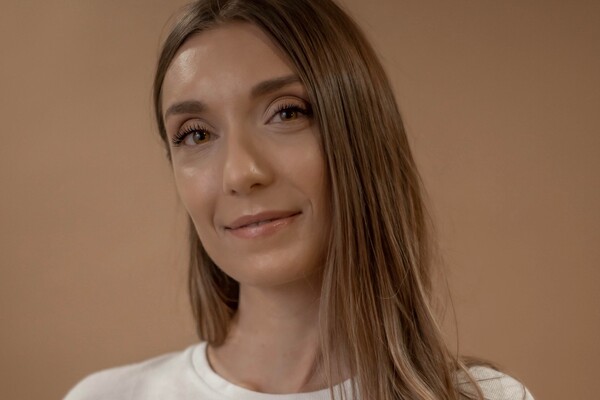Jonathan Dostrovsky Award in Neuroscience
Established by the generosity of Dr. Jonathan Dostrovsky, the 2025 Jonathan Dostrovsk Award in Neuroscience recognizes the outstanding achievement in graduate neuroscience research towards a Ph.D. degree.
One $2000 annual award is available for 2025. Please submit an application for the award using the online form.
Application deadline for the award is May 23rd, 2025, 11:59 PM EST.
All applicants will be notified of the results of the competition at the 2025 CPIN Research Day, June 24th, 2025
2025 Jonathan Dostrovsky Award in Neuroscience
2025 Jonathan Dostrovsky Award in Neuroscience recognizes the outstanding achievement in graduate neuroscience research towards a Ph.D. degree.
Award Overview:
Student Application Deadline: May 23rd, 2025, 11:59 PM EST
Where to apply: Office of the Collaborative Program in Neuroscience via online form.
Value of the annual awards: $2000
Duration of award: 1 year
Level of study: Doctoral
Purpose:
Established by the generosity of Dr. Jonathan Dostrovsky, these annual awards recognize and support excellence amongst graduate students enrolled in the Collaborative Program in Neuroscience and will be selected based on academic merit effective 2019.
Award Eligibility:
Student must be registered in her/his Ph.D. studies in CPIN at time of application, and in good standing toward CPIN requirement completion.
Selection Criteria:
The recipient of the award will be selected by a committee appointed by the Collaborative Program in Neuroscience for this purpose. The committee will make their decision based on, but not limited to, the following criteria: intellect, originality and judgement, research skills, independent research potential, motivation, and progress in research towards their graduate degrees.
Application Process:
The application should start with nomination by the graduate supervisor or self-nomination.
All applicants must complete the official application form at the CPIN website, completed applications should include the following:
- CV including Education; Awards received (please indicate recognition, scholarships/grants with the amounts); Publications (separate conference presentations (oral, poster), peer-reviewed papers (published, accepted, or submitted), Books, or conference Abstracts and Extracurricular activities/Leadership activities and positions held
- Summary of student’s current research project (1 page maximum)
- Future career plans (1/2 page maximum)
- Two letters of support, including one from the student’s supervisor, to be sent in PDF format to the CPIN Office (p.neuroscience@utoronto.ca) directly from the issuing professor's official email address
Results:
All applicants will be notified of the results of the competition at the 2025 CPIN Research Day, June 24th, 2025.
Contact Info:
For more information, please contact the CPIN Office; E-mail: p.neuroscience@utoronto.ca

Dr. Jonathan Dostrovsky
Dr. Dostrovsky completed his undergraduate studies in physics and mathematics at the Israel Institute of Technology in 1969 and then proceeded to graduate studies in the Department of Physiology at University College London where he obtained his M.Sc. degree in 1971 under the supervision of John O’Keefe. His master’s research project with O’Keefe led to the important discovery of ‘place cells’ in the hippocampus, and their seminal paper describing their findings has become a cornerstone in the field of spatial navigation and hippocampal function. Dr. Dostrovsky moved to Toronto where he obtained his PhD degree in the Zoology Dept. in 1974 for studies on pain processing in the spinal cord. Following 3-years of postdoctoral research in London on the somatosensory system with special emphasis on plasticity, with Pat Wall, he returned to the University of Toronto to take up a position in the Department of Physiology. He was promoted full professor in 1989 and is currently a Professor Emeritus in the Department of Physiology and Faculty of Dentistry.
More
Throughout his career Dr. Dostrovsky has made significant advances in our understanding of the neurophysiological basis of pain perception, somatosensory information processing, brain plasticity and basal-ganglia related movement disorders. A hallmark of these studies is the elegant combination of experiments executed in various animal models and in humans. For example, data from the Dostrovsky lab shed light on how thermal and noxious information is processed at the level of the thalamus in humans and in a rat model of allodynia. In a publication in Nature, Dr. Dostrovsky demonstrated how thalamic networks could contribute to phantom sensations in amputees. He also studied this question in animal models, where the plasticity of the sensory map in thalamic networks was demonstrated in rats after the removal of the hind-limb input. In a series of elegant studies he has unveiled the relationship between movement disorders and altered basal ganglia oscillatory activity. These studies have significantly contributed to our current understanding of central physiological mechanisms in the somatosensory and motor networks which underlie our perception of tactile, thermal and painful stimuli and the pathophysiological alterations that occur following certain traumatic or disease-induced injuries to the nervous system.
Dr. Dostrovsky was also very actively involved in neuroscience education at the University at the undergraduate, graduate and postdoctoral levels, and has served on many committees at all levels. In particular he served as Director of CPIN from 1993 to 2008, and as the President /Vice President of the Canadian Association for Neuroscience from 2003 to 2007.
Meet the Past Awardees
Previous Awardees
-
2022: N/A
-
2021: Mohsen Poorganji (senior awardee), Nicole Schwab (junior awardee)
-
2020: Sarasa Tohyama (senior awardee), Rida Ansari (junior awardee)
-
2019: Afif Aqrabwi (senior awardee), Julie Sato (junior awardee)
-
2018: Ina Anreiter
-
2017: Alicia Hilderley
- 2016: Katharine Dunlop



